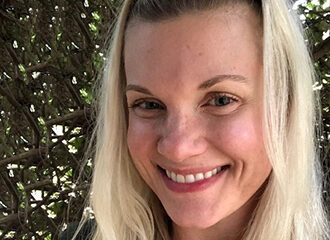By: Erin Birely, LCPC, The Renfrew Center’s Alumni Services Coordinator
As I watch the morning news this week, I am acutely aware all news is coming second to Olympic coverage. Our country is enthralled by the trials and tribulations of these amazing athletes and their feats of strength and skill. It can be an exciting thing for many of us to watch these games and root for our favorites to get the gold!
For some of us though, the Olympics might be a trigger for our eating disorder and negative body image beliefs. We might notice thoughts comparing our bodies to the athletes, or thoughts about our own athletic dreams that aren’t in line with our recovery plans. If you’re noticing the Olympics are a bit more of a trigger for you this year, I wanted to offer some helpful tips to still be able to enjoy the games!
- Stay Mindful – Notice what is coming up in your body and your mind as you’re watching. Are your thoughts balanced? Is your body giving you a signal about an important emotion coming up? Use these as ways to acknowledge your emotions, and then re-anchor into the act of watching and cheering on your favorites!
- Remember Your Intention – Ask yourself, “Why did I turn this on in the first place?” Was it to have a body competition against the best of the best in their sport? If it was, maybe try changing the channel to something more for enjoyment. If it wasn’t, remind yourself why. To see someone do something amazing, to cheer for your country, or to learn about a new sport.
- Be Grateful For Your Body – At its core, the Olympics are a time to celebrate the amazing things we can all do with our bodies in some way, degree, or form. While we aren’t all Olympic or Paralympic athletes, we all can move and be in our bodies in our own way. Try and use your Olympic viewing as a way to think about what new ways you want to be present in your body.
Erin Birely, LCPC, started working as the Team Leader of The Renfrew Center of Baltimore in September 2016 and joined the Alumni Services Team in 2019 as the Alumni Services Coordinator. Prior to joining Renfrew, Erin had worked in private practice as well as inpatient, partial and intensive outpatient levels of care. Erin has worked in the field of eating disorder treatment since receiving her Master’s degree in 2012. She enjoys working with people to make positive and long lasting changes in life through therapy and building their emotional tolerance.



